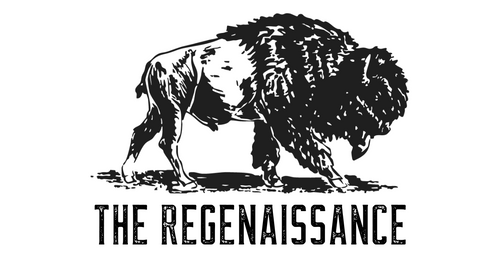When Farmers Can’t Fix Their Own Tools
Imagine buying a $300,000 tractor and still being told you don’t really own it. That’s the reality many farmers face today. Thanks to software locks and corporate repair monopolies, a single error code can turn a machine into a useless brick until a manufacturer-approved technician arrives.
For regenerative and small-scale farmers, it’s an existential threat. Miss a narrow planting or harvest window, and an entire season’s income can vanish.
As Virginia farmer John Boyd Jr. puts it:
“I should not have to wait two weeks for a service technician to come out here and put a damn alternator on my tractor, which I have the skill set to do.”
The Hidden Cost of Repair Restrictions
A joint analysis by U.S. PIRG and the National Farmers Union estimates farmers lose over $4.2 billion per year from repair monopolies. That includes:
-
$3 billion in lost productivity from tractor downtime
-
$1.2 billion in inflated repair costs due to dealer-only service
Authorized dealers charge an average of $58 more per hour than independent mechanics. And thanks to industry consolidation, each John Deere dealership now covers 5.3 million acres of farmland on average leaving many rural areas without local service options.
For small farmers, the result is devastating. As one report noted, “Losing time to repairs can mean the difference between staying in business or shuttering the barn doors.”
Who Really Owns the Tractor?
The heart of the fight is this: do farmers truly own the machines they purchase, or are they just licensing software from corporations?
John Deere, the dominant player in U.S. farm equipment, insists that its embedded software is protected intellectual property. Farmers may own the hardware, Deere argues, but they’re only leasing the code that makes it run. That means when a fault code appears, the tractor may shut down until a dealer resets it, no matter how skilled the farmer is.
This model transforms equipment service into a multi-billion-dollar monopoly for manufacturers, while stripping farmers of independence.
Hacks, Workarounds, and the Rise of Repair Rebels
Locked out of their own machines, some farmers have resorted to hacking their tractors using pirated firmware from abroad. Others have turned to the hacker community: at a 2022 DefCon conference, researcher Sick Codes demonstrated a jailbreak that gave full access to John Deere tractor systems.
The irony? These hacks show that the supposed “security” arguments used to justify repair restrictions are flimsy. Farmers aren’t asking to rewrite emissions software they’re demanding the ability to clear error codes, swap parts, and keep food production moving.
Colorado Breaks the Dam
In 2023, Colorado became the first state to pass a Right-to-Repair law for agricultural equipment. Effective January 1, 2024, it requires companies like Deere to provide farmers and independent mechanics with access to the same parts, tools, and software available to dealers.
This victory has sparked momentum nationwide. By the end of 2023, Minnesota, California, and New York had also passed broader right-to-repair laws, and Senator Jon Tester introduced the Agricultural Right to Repair Act in Congress.
Meanwhile, the FTC and state attorneys general have filed antitrust lawsuits against John Deere, accusing it of illegally monopolizing the repair market.
Manufacturers Feel the Pressure
John Deere and other manufacturers have tried to head off legislation by signing voluntary agreements with farm groups. These Memorandums of Understanding (MOUs) promise more repair access, but come with big loopholes:
-
Companies can walk away with just 30 days’ notice
-
No enforcement mechanisms exist if they fail to deliver
-
Farmers still lack access to full dealer-level diagnostics
As the National Farmers Union put it: “These MOUs are flawed. They fail to guarantee comprehensive repair access.”
Repair Is Freedom
The fight for the right to repair is about more than wrenches and code. It’s about sovereignty. Farmers should control the tools that feed their communities, not corporations.
For regenerative farmers especially, independence is core to survival. Repair rights mean:
-
Lower repair costs and less downtime
-
Stronger rural economies through independent repair shops
-
Greater resilience in the face of weather and market shocks
-
Real ownership of the equipment they’ve already paid for
Or as John Boyd Jr. asks:
“If farmers buy their equipment but are unable to fix it, who’s really the owner?”
Why It Matters for Food Freedom Rebels
Right to Repair is part of a larger movement to take back power from industrial agriculture monopolies. Just like seed sovereignty, water rights, and access to raw milk, it’s a fight over who controls the foundation of our food system.
When farmers can fix their tractors, they’re not just repairing machines — they’re repairing a broken food system.





